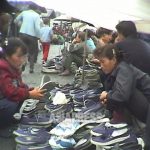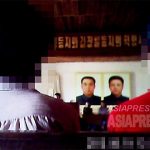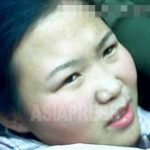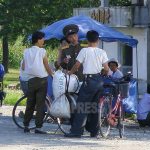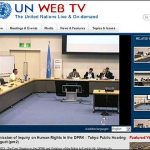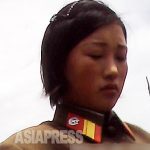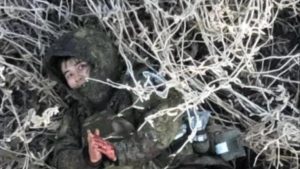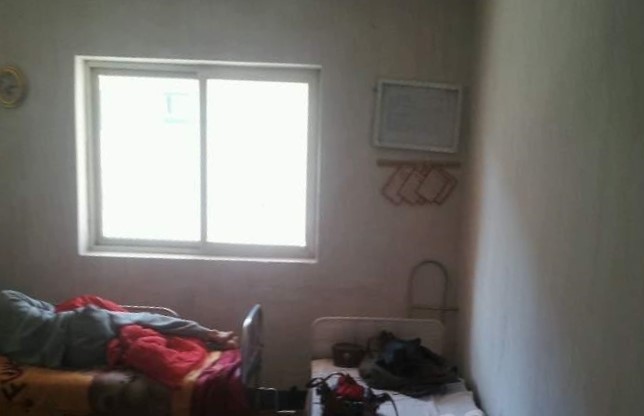
<Investigation>Current living conditions of North Koreans (1) Poor infrastructure…conditions surrounding water, electricity, heating, and restrooms
<Investigation>Current living conditions of N. Koreans (2) How is public education corrupting
Free health care, along with compulsory education, is a staple of the North Korean regime's socialist propaganda. But in the current North Korean context, health care is less an issue of socialist superiority than an example of a failed system. In the third part of a series of investigations into the real lives of North Koreans conducted by ASIAPRESS reporting partners from March to May this year, we look at the reality of health care in North Korea. (JEON Sung-jun / KANG Ji-won)
Regarding health care, we heard from "A," who lives in Ryanggang Province, and "B," who lives in North Hamgyong Province.
◆The medical system has collapsed, with people forced to hand over bribes to get prescriptions
B said hospital treatment used to be free, but the biggest change in recent years has been the need to pay for medicine.
"They used to prescribe medicine, give injections, and you had to bribe them for the medicine. Now they just give you a prescription, but you have to buy the medicines yourself, and what the hospitals give you is just ordinary saline and treatment, so it doesn't mean much."
B elaborated on the broken healthcare landscape, saying that doctors are more popular for their diagnosis-related documents than for their treatment.
"Doctors are popular because of the certificates. If you don't show up for work, you are punished as unemployed and absent without leave, so people often pay bribes to get certificates through hospitals and clinics."
According to a recent survey by ASIAPRESS, while companies provide limited rations, such as one week's worth of food per month, this is not enough to sustain life. As a result, people prefer to engage in economic activities outside the workplace rather than go to work, where they are expected to provide their labor without being paid.
However, not going to work is illegal and subject to crackdowns, so many people come to the hospital to get a certificate that will help them get away with it.
◆Government strongly cracks down on private sales of medicine
A details how the distribution and supply of medicine in North Korea today is very different from the past:
"Drugs can only be purchased from pharmaceutical factory outlets outside hospitals. In dangerous situations, such as an emergency accident or unconsciousness, medicine is provided at the hospital."
In the past, if you were treated in a hospital, you could get almost free medicine from the hospital pharmacy with a prescription, but now hospitals only accept prescriptions, and you have to buy medicine at your own expense from the pharmaceutical company outlets.
He noted that the sale and distribution of medicines by individuals is punishable by law.
"The act of individuals making money with national medicines is severely punished, including the seller and buyer, the source and the person who stole it, and there is even a 50,000 won reward for reporting the illegal sale of medicines, so there are very few private sales anymore."

◆Illicit drugs are used due to shortages of legitimate drugs
However, in North Korea, where there is an absolute shortage of medicines, access to legitimate medicines is limited. Unlike in the past, private distribution of medicines has been severely restricted, leaving the population with a shortage of medicines.
This has led to a resurgence in the abuse of drugs such as opium for medical purposes, B said. In North Korea, opium is widely used for medical purposes because it is recognized by people for its effectiveness against various diseases.
Although not directly related to medicine, the use of a stimulant called "bingdu" (meth) is also on the rise.
"Bingdu has been in short supply because of COVID (imports from China), but I've heard it's been selling for 400-500 yuan per gram lately, mostly to officials and people with money."
<Inside N. Korea>Opium addicts rise again as stimulants remain almost completely unavailable…Why? The police quickly clamp down on manufacture of drug
※ 1 yuan is about 189 Korean won.
B says that government control over drugs has been tightened recently, "to the point where they are now talking about a two-year re-education sentence for those who distribute, rather than those who use.
However, B adds that stimulant use is not as prevalent as it used to be because people are struggling to make ends meet and don't have as much money.
Based on the reporting partners' investigations, free medical treatment seems to be a thing of the past in North Korea. But that is not necessarily a bad thing. It would be a good thing if the country could move away from its obsession with "free treatment" and establish a health care system that actually helps people's health, even if it requires people to pay for it.

(End of series)
※ ASIAPRESS communicates with its reporting partners through Chinese cell phones smuggled into North Korea.
<Investigation>Current living conditions of North Koreans (1) Poor infrastructure…conditions surrounding water, electricity, heating, and restrooms
<Investigation>Current living conditions of N. Koreans (2) How is public education corrupting
- <Interview with a N. Korean Woman>What was happening in the spring of 2024? (1) Who is starving and why?
- <Inside N. Korea> Regime hands out rice to rural food-short households, “Pay back in the fall with 30% interest”
- <Inside N. Korea>Chinese RMB exchange rate surges, up 42.8% since start of year...National police agency warns individuals and businesses against using foreign currencies
- <Inside N. Korea>April rations at the largest iron mine was just 3 kilograms of corn per worker…Anxiety-ridden workers voluntarily mobilize to farming work
- <Inside N. Korea>Recruitment for the world's longest military service(1) This year 8 years for men, 5 years for women
